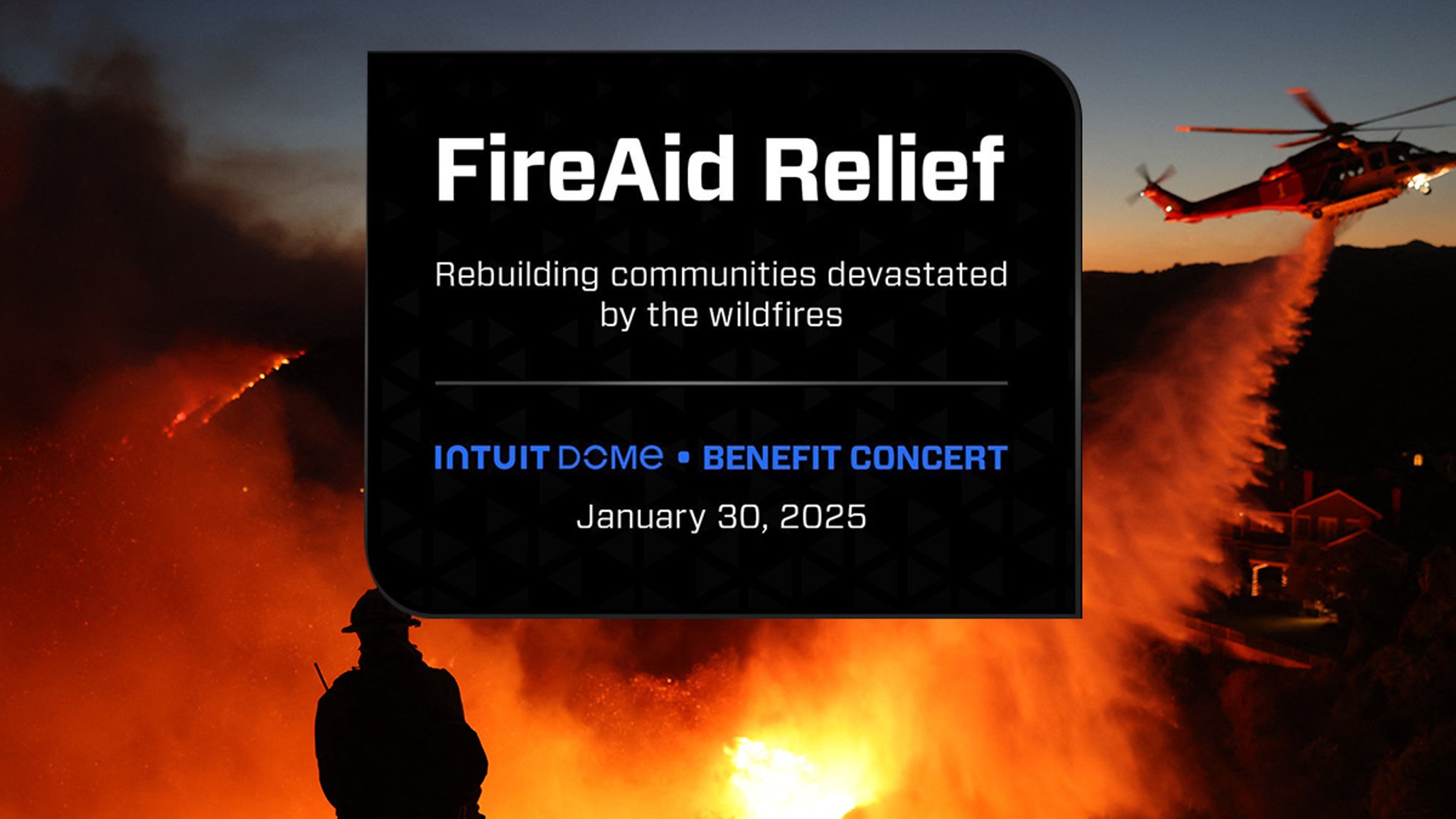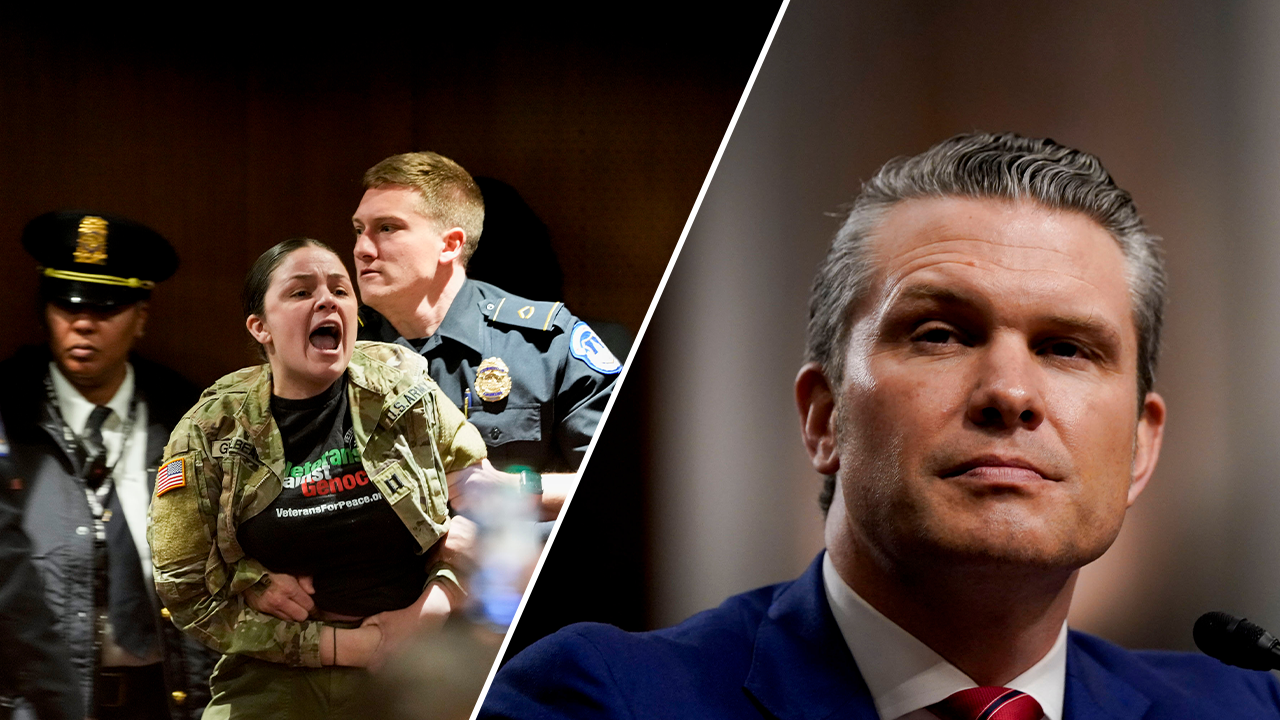World
US, Brazil float new Venezuela election despite government, opposition rebuffs
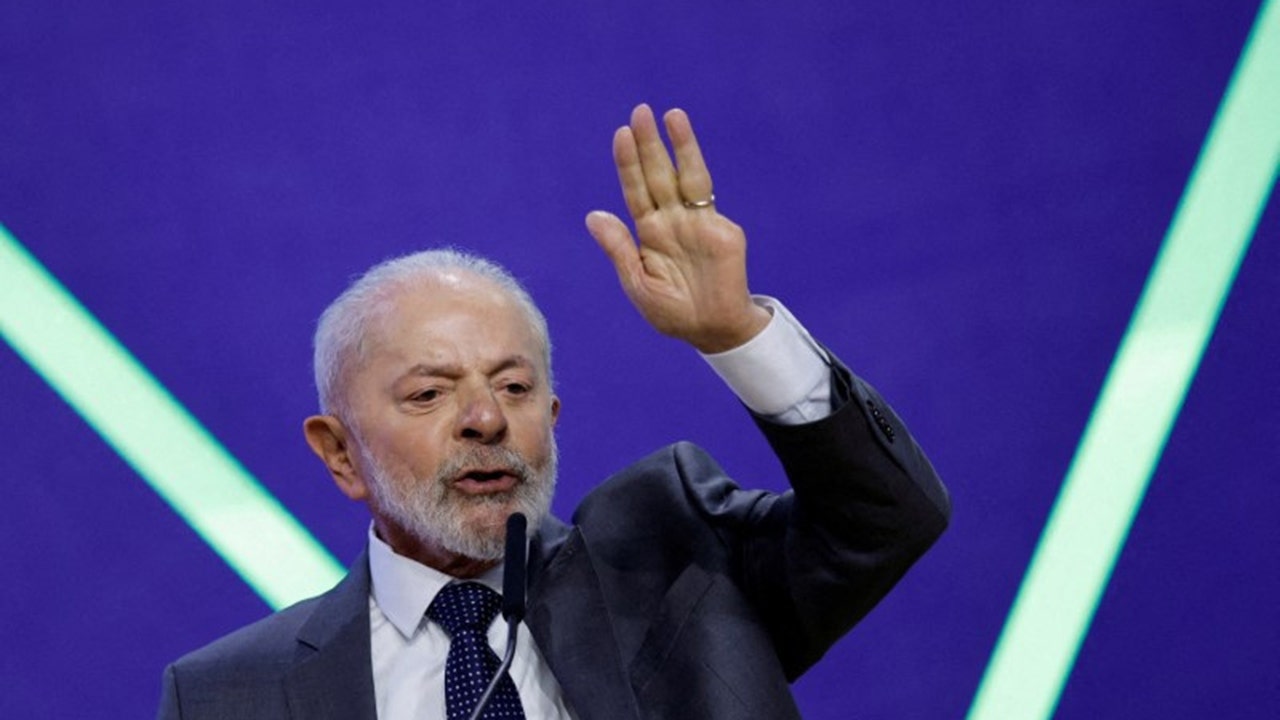
U.S. President Joe Biden said on Thursday that he would support a new election in Venezuela, after Brazilian President Luiz Inacio Lula da Silva also floated the idea, despite rebuffs from Venezuela’s ruling party and its opposition which both claim victory in the July 28 contest.
Biden spoke to reporters in the wake of Lula’s suggestion that Venezuelan leader Nicolas Maduro could call a new contest involving international observers as a potential solution for the political crisis in the country. The U.S. has rejected Madura’s victory claim.
STATE DEPARTMENT CRIES FALSE OVER WSJ REPORT CLAIMING US OFFERED VENEZUELA’S MADURO AMNESTY
Asked if he supports a new election in Venezuela, Biden said “I do”.
The suggestion is among several from the international community which have no support so far from either Maduro or his opposition coalition opponents.
The U.S., which hardened oil sanctions in April on the OPEC member for what it said was Maduro’s failure to comply with a deal on electoral conditions, and other Western countries are showing little sign of swift, tough action over what many of them have condemned as voting fraud.
Brazil’s President Luiz Inácio Lula da Silva speaks during the national technology conference in Brasília, Brazil July 30 2024. (REUTERS/Adriano Machado/File Photo)
Lula said a “coalition government” could be another possible solution for Venezuela.
“If (Maduro) has common sense, he could put it to the people, perhaps calling new elections with a nonpartisan electoral committee,” Lula said in a radio interview.
Venezuelan opposition leader Maria Corina Machado ruled out Biden and Lula’s suggestion.
“The election already happened,” Machado told journalists from Argentina and Chile in a video call later on Thursday. “Maduro must be made to know that the cost of his staying grows with each day that passes.”
Ruling party officials in Venezuela have also previously ruled out new elections.
The Brazilian president said he still does not recognize Maduro as the winner of the vote and that his government must publish voting tallies that have not been released, echoing calls from countries around the world over the last two weeks.
“Maduro knows he owes Brazil and the world an explanation,” Lula said.
Lula and his Colombian counterpart Gustavo Petro spoke by phone on Wednesday as part of efforts to find a solution to Venezuela’s crisis, but no details were released of the conversation.
Petro suggested in a post on X on Thursday that the Venezuelan ruling party and the opposition could temporarily trade off power, echoing an arrangement used in Colombia for 16 years in the twentieth century.
“The political solution for Venezuela depends on Nicolas Maduro, who carries the peace and prosperity of his country,” Petro said, adding in another post that a political deal is the best option and depends on Venezuelans.
Petro, who reopened trade and diplomatic relations with Venezuela after he took office in 2022, also called for the lifting of all sanctions on Venezuela.
Latin American leaders will discuss the crisis this weekend when many are in the Dominican Republic to attend the inauguration of that country’s new president, Panama’s President Jose Raul Mulino said on Thursday during his weekly press conference.
Lula’s top foreign policy advisor Celso Amorim, speaking to the Senate Foreign Relations Committee, said Brazil had not formally proposed a new election in Venezuela.
Conservative senators at the hearing criticized the Lula administration for favoring Maduro with its soft stance, and asked what Brazil was doing for jailed opposition leaders.
Amorim said Brazil offered to send a plane to pick up six opposition members seeking asylum in the Argentine embassy, now under a Brazilian flag since Venezuela broke ties with Argentina.
Venezuela’s electoral authority proclaimed Maduro won 51% of the vote but has not divulged full vote tallies.
Tallies in possession of the opposition, which it has posted to a public website, show Gonzalez received 67% of the vote.

World
Looking for a job in IT? These countries are desperate for new hires

Over two-thirds of large companies struggle to fill their IT roles. What are the highest-paid jobs? Which countries are most in need?
As the IT sector continues to grow, thousands of European companies are having trouble filling the many positions available.
According to 2024 Eurostat data, 57.5% of EU businesses can’t recruit all the necessary ICT specialists.
The gap between labour demand and actual employment has grown by 20% in the past ten years.
Large businesses are facing the biggest challenges.
Sixty-eight per cent of them are unable to fill all their ICT specialist positions, followed by medium (59.2%) and small-sized enterprises (53.4%).
Germany, the Czech Republic, Malta, Austria, and Luxembourg are the countries most in need of ICT specialists, with at least 65% of businesses facing shortages.
The percentages are even higher for large enterprises: 84% in Malta, 80% in Germany, 79% in the Czech Republic, 78% in Slovenia, 76% in Austria, 75% in Luxembourg, 73% in Latvia, 72% in Hungary and 71% in Croatia.
Spain, Poland, and Bulgaria have the least hiring problems, although at least 30% of companies in these countries still face ICT shortages.
What are the highest-paid IT positions?
The main difficulties in recruitment, according to Eurostat, are a lack of applications, insufficient qualifications and experience, and high salary expectations.
Salaries in the ICT sector have consistently outpaced average wages in Europe in the last decade, according to the 2024 OECD Digital Economy Outlook. In the EU, in particular, annual wages grew by 0.24% compared to 0.20% in the rest of the economy.
Recruitment specialists Robert Walters have listed the top-paid ICT jobs in countries including Germany, which seems to be struggling the most in the EU to recruit specialists.
The highest-paid role is Chief Information Technology Officer, with an annual base of €150k for employees with at least three years of experience, to €180k for those with at least eight years.
The consultancy role in the highest bracket is the SAP/ERP one, with a base of €100k. (SAP ERP is an enterprise resource planning software.)
Data engineer and data scientist positions are both in the €100-120k bracket.
Video editor • Mert Can Yilmaz
World
TVLine Items: Ringo Starr Concert Special, Ms. Rachel to Netflix and More

ad
World
India steps up diplomatic relations with the Taliban as rival Pakistan loses influence in Afghanistan
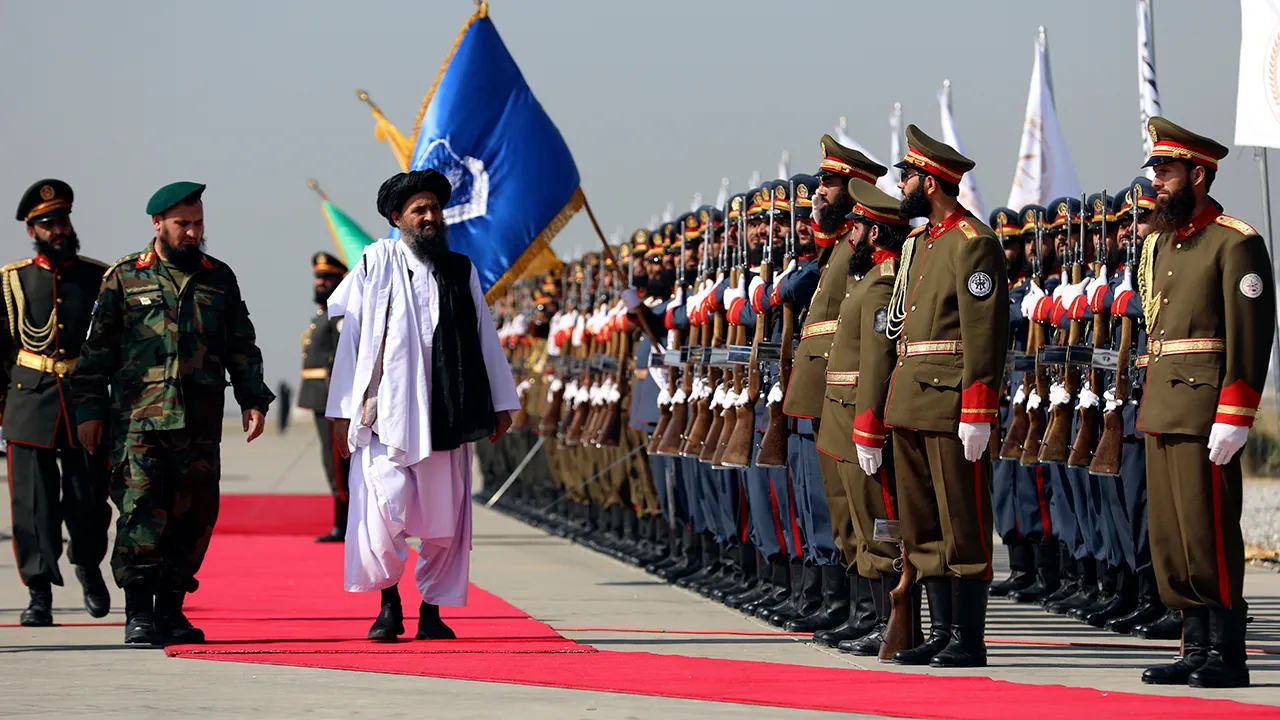
India’s foreign secretary, Vikram Misri, met acting Afghanistan Foreign Minister Amir Khan Muttaqi in Dubai last week, making a strong leap forward in bilateral relations.
While India has been gradually increasing its engagement with the Taliban, this latest meeting represents the highest-level talks since the Islamic group’s takeover of Afghanistan in 2021. Notably, this was the second meeting between officials from New Delhi and Kabul in just two months, indicating both countries’ readiness to step up diplomatic engagement.
“We shouldn’t overstate the impact of Pakistan’s tensions with the Taliban on India’s stepped up engagement with the Taliban. New Delhi had already taken some small steps toward Taliban engagement soon after the Taliban’s return to power, before tensions crept into the Taliban’s relations with Pakistan,” Michael Kugelman, director of the South Asia Institute at the Wilson Center, tells Fox News Digital.
TALIBAN GOVERNMENT TO CEASE OPERATIONS AT AFGHAN EMBASSY IN INDIA’S CAPITAL
Narendra Modi, India’s prime minister, addresses the media at the Parliament House in New Delhi on Dec. 7, 2022. (Prakash Singh/Bloomberg via Getty Images)
During the discussions, Misri emphasized the “historic friendship” and “strong people-to-people contacts” between the two nations. Meanwhile, the Afghan foreign minister described India as “an important and economically significant country in the region.”
According to a statement from India’s Ministry of External Affairs, the talks focused on strengthening bilateral relations, addressing security concerns, engaging in development projects and enhancing humanitarian assistance.
India is among several countries actively facilitating trade, aid and medical support to Afghanistan under the Taliban regime. The country, which hosts thousands of Afghan refugees, also pledged to provide “material support” for their rehabilitation back in Afghanistan.
“New Delhi’s outreach to the Taliban is driven by the view that closer engagement can help India better pursue its security and strategic interests in Afghanistan – and these include strengthening trade and connectivity links and ensuring India isn’t threatened by terrorists on Afghan soil,” Kugelman explained.
BIDEN ADMIN’S AFGHANISTAN WITHDRAWAL FAILURES DETAILED IN REPORT
The discussions also touched on enhancing trade via the Chabahar Port in Iran’s Sistan-Baluchestan province. India has been developing the Chabahar Port to enable goods to bypass ports in its rival, Pakistan. This strategic port, which lies just across the border from Pakistan, could provide landlocked Afghanistan with an alternative route to receive and send goods, circumventing Pakistan.
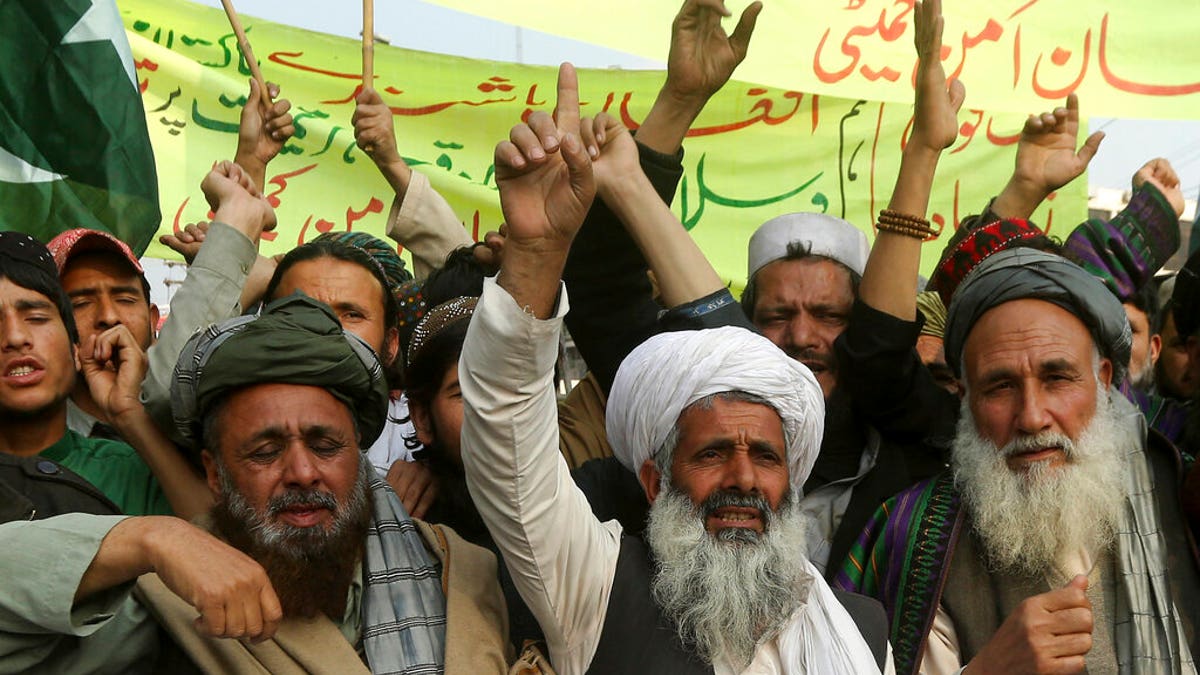
Afghan refugees living in Pakistan rally against India in Lahore, Pakistan, Feb. 28, 2019. (AP Photo/K.M. Chaudary)
The meeting between India and the Taliban could unsettle Pakistan, which shares borders with both countries. India and Pakistan are long-standing rivals, having fought three wars over Kashmir since both countries gained independence in 1947. This meeting also takes place amid deteriorating relations between the Taliban regime and Pakistan, once considered friendly neighbors, as cross-border violence escalates.
PAKISTANI AIRSTRIKES TARGET TALIBAN IN AFGHANISTAN FOLLOWING SUICIDE BOMBING
The talks occurred just days after India “unequivocally” condemned Pakistani airstrikes in Afghanistan in late December. These rare airstrikes resulted in the deaths of dozens of civilians, including women and children. Pakistani officials claimed the strikes targeted militants of the Pakistani Taliban. Islamabad frequently accuses the Pakistani Taliban of using Afghan territory to launch attacks in Pakistan, a charge Kabul denies.
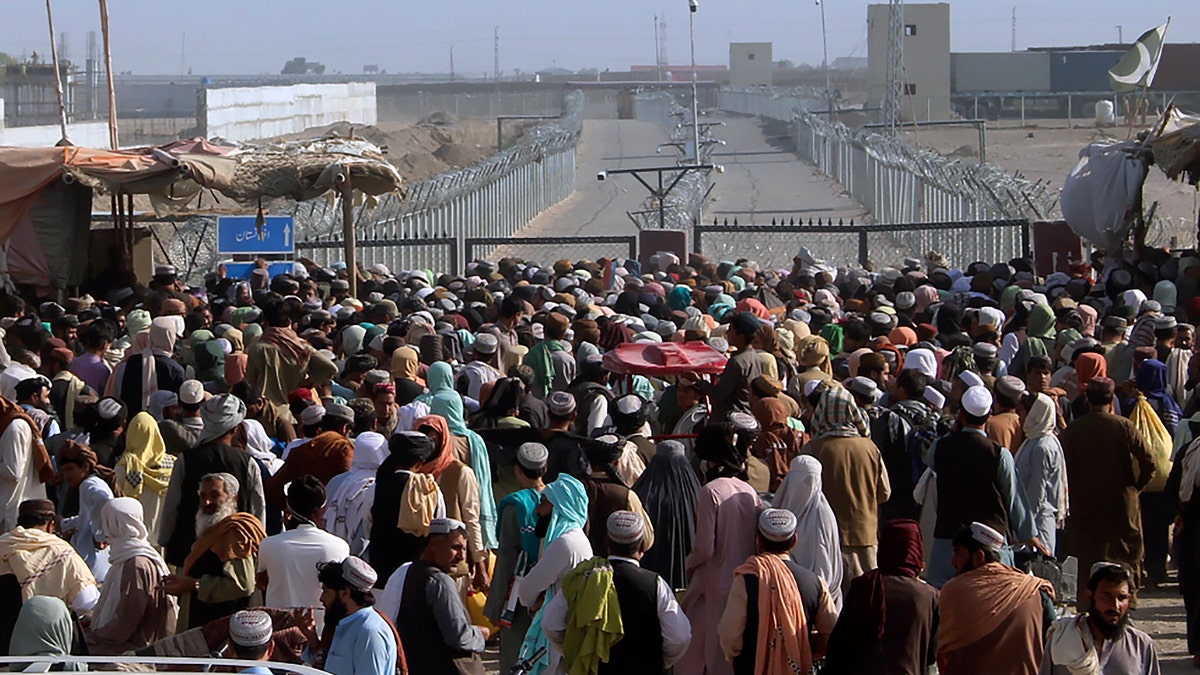
People gather at the border crossing between Pakistan and Afghanistan, in Chaman, Pakistan, Aug. 11, 2021. (AP Photo/Jafar Khan)
The diplomatic engagement also follows the Taliban’s appointment of an acting consul in the Afghan consulate in Bombay in November, the same month India’s joint secretary of the Ministry of External Affairs visited Kabul. Although no foreign government, including India, has officially recognized the Taliban administration since it swept to power in 2021, India reopened its embassy in Kabul less than a year after the Taliban’s return to power.
“Islamabad has already seen its relations with its former Taliban asset take a major tumble,” Kugelman, said. “Now it must grapple with the fact that its rival India may fill the vacuum left by Pakistan’s distancing from the Taliban. No matter how you slice it, this is bad news for Pakistan all around.”
BIDEN SAYS HE’S LEAVING TRUMP ‘STRONG HAND TO PLAY,’ DEFENDS HIS RECORD ON AFGHANISTAN
Several factors, in addition to deteriorating Pakistani relations, may have led India to strengthen its relationship with Afghanistan. The weakening of Iran, due to conflicts in the Middle East and internal issues, has diminished its influence over the Taliban. At the same time, Russia, one of India’s closest allies, is moving toward recognizing the Taliban government in Afghanistan, even calling the group a partner in combating terrorism. Moscow perceives a significant security threat from Islamist militant groups across countries from Afghanistan to the Middle East, especially after losing Bashar al-Assad in Syria.
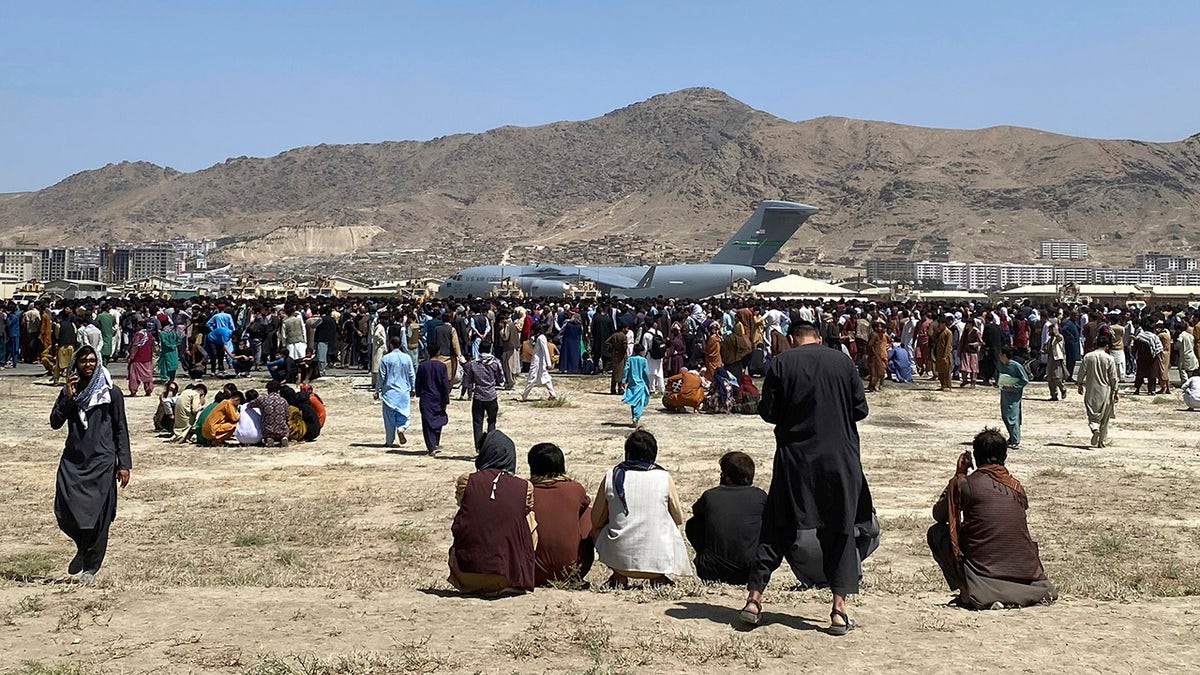
Hundreds of people gather near a U.S. Air Force C-17 transport plane at a perimeter at the international airport in Kabul, Afghanistan, on Aug. 17, 2021. (AP)
China is also enhancing its connections with the Taliban, causing India to be wary of Beijing’s increasing influence. Additionally, India’s approach may be influenced by President-elect Trump’s imminent return to the White House. The Trump administration initially brokered the U.S.-Afghanistan withdrawal deal. Trump’s re-election could now introduce new dynamics to the region, prompting India to safeguard its long-term interests.
In contrast, the United States has severed diplomatic ties with Kabul since its chaotic withdrawal from war-torn Afghanistan. Washington maintains a policy of sanctions and isolation toward Taliban leaders. But now, nations in the region are evaluating the implications of a new Trump administration for the Taliban.
-

 Health1 week ago
Health1 week agoOzempic ‘microdosing’ is the new weight-loss trend: Should you try it?
-
/cdn.vox-cdn.com/uploads/chorus_asset/file/25822586/STK169_ZUCKERBERG_MAGA_STKS491_CVIRGINIA_A.jpg)
/cdn.vox-cdn.com/uploads/chorus_asset/file/25822586/STK169_ZUCKERBERG_MAGA_STKS491_CVIRGINIA_A.jpg) Technology6 days ago
Technology6 days agoMeta is highlighting a splintering global approach to online speech
-

 Science3 days ago
Science3 days agoMetro will offer free rides in L.A. through Sunday due to fires
-
/cdn.vox-cdn.com/uploads/chorus_asset/file/25821992/videoframe_720397.png)
/cdn.vox-cdn.com/uploads/chorus_asset/file/25821992/videoframe_720397.png) Technology7 days ago
Technology7 days agoLas Vegas police release ChatGPT logs from the suspect in the Cybertruck explosion
-

 Movie Reviews1 week ago
Movie Reviews1 week ago‘How to Make Millions Before Grandma Dies’ Review: Thai Oscar Entry Is a Disarmingly Sentimental Tear-Jerker
-

 Health1 week ago
Health1 week agoMichael J. Fox honored with Presidential Medal of Freedom for Parkinson’s research efforts
-

 Movie Reviews1 week ago
Movie Reviews1 week agoMovie Review: Millennials try to buy-in or opt-out of the “American Meltdown”
-

 News7 days ago
News7 days agoPhotos: Pacific Palisades Wildfire Engulfs Homes in an L.A. Neighborhood


